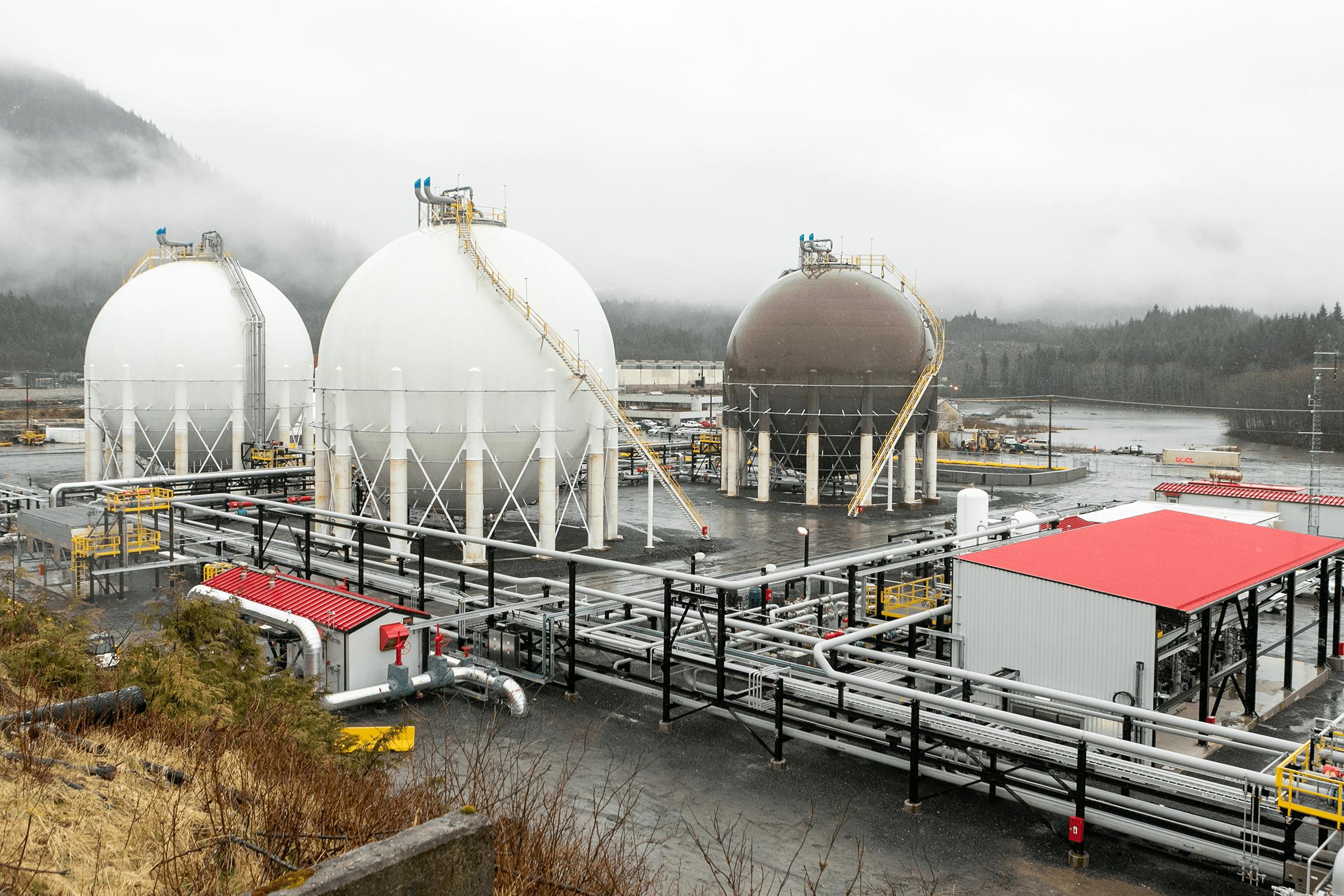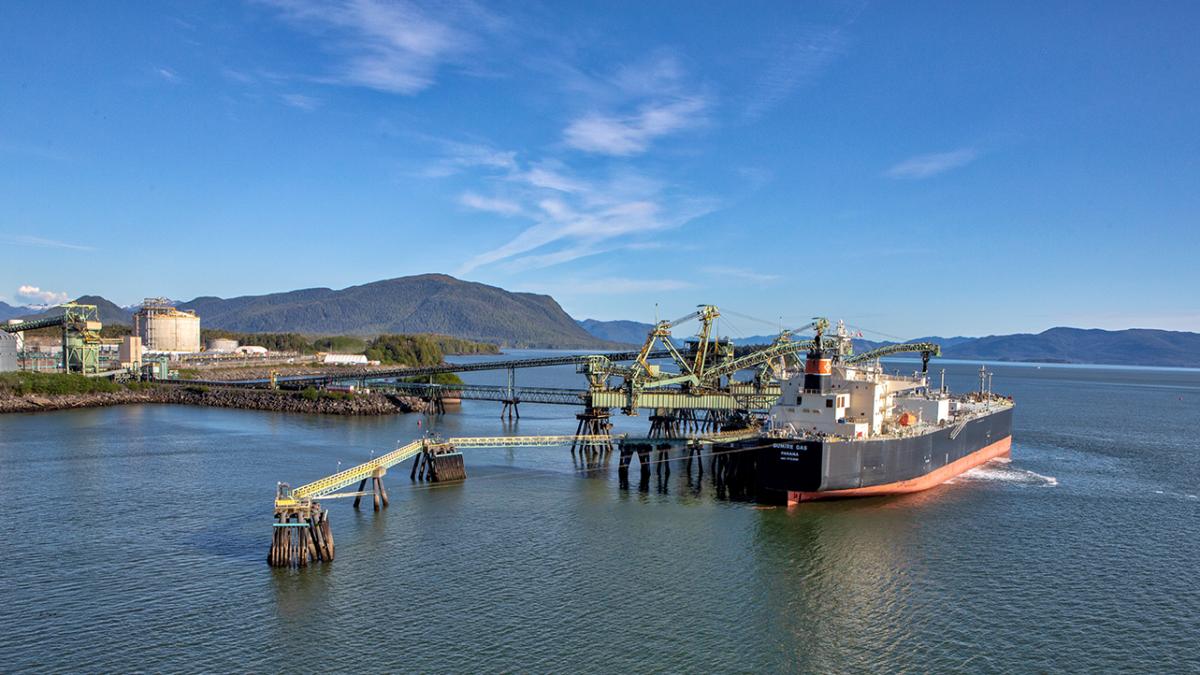Propane from Canada is helping customers in Asia reduce emissions and their reliance on the Middle East for a critical fuel to heat homes, cook food, power vehicles, and produce products like medical plastics.
The first shipments left Canada’s newest propane export facility on April 9, 2021, with the start of operations at Calgary-based Pembina Pipeline Corporation’s Prince Rupert Terminal.
“We think that the best markets in the world will be non-North American markets in the future, and I don’t mean the next five years,” Pembina CEO Mick Dilger told a recent investor call.
“If you’re looking out 20 years, we think the Asian-Indian market is going to be the place to be. We’re the closest to that, and we produce some of the cleanest hydrocarbons, most ethical hydrocarbons in the world as a basin, so we now think it’s advantage Canada.”
While Pembina is in the early stages of startup, nearby the Ridley Island Propane Export Terminal (RIPET) – Canada’s first – is running at full tilt. Owned by Calgary-based AltaGas Ltd., RIPET starting exporting cargo in May 2019.
“Prior to the development of the Ridley Island Propane Export Terminal, the only market for surplus western Canadian propane was to the United States. We recognized the opportunity to develop infrastructure near Prince Rupert, British Columbia to deliver propane to growing markets in Asia that are seeking lower emissions fuels,” AltaGas said in a statement to the CEC.
“Developing RIPET has given Canadian producers a tangible benefit of access to new, overseas markets for propane.”
Propane is produced as a by-product of natural gas processing and petroleum refining. It’s transported by rail to the Prince Rupert-area terminals from production sites in Alberta and B.C.
‘COVID-proof’ cleaner energy
The global market for propane remained strong in 2020 despite the impacts of the COVID-19 pandemic, according to analysts with Argus Media, who recently described propane as “COVID-proof” compared to other fuels.
Argus estimates that global propane demand fell by just 2 per cent in 2020, compared to drops of 14 per cent for gasoline, 7 per cent for diesel and 10 per cent for crude oil. Propane imports increased to China, India, Indonesia and South Korea by 3 per cent last year, according to Argus data.
Analysts said propane hasn’t been impacted in the same way because of its more diverse end uses.
According to an April 2020 briefing by lawyers with Burnet, Duckworth & Palmer LLP, Asia accounts for 45 per cent of the world’s propane consumption, with China being the largest importer.
Sixty per cent of Asia’s propane demand is for use in residential cooking and heating, with the rest split between commercial use and petrochemicals like operations that make propylene for the plastics industry.
“Propane is considered a greener, cleaner source of energy as it emits 60 per cent less carbon monoxide than gasoline, 98 per cent less particulate matter than diesel, and contains virtually no sulphur – a contributor to acid rain,” wrote BDP partner Alicia Quesnel and associate Robyn Finley.
Canadian exports rise while Saudi Arabia’s fall
Canada’s marine propane exports rose by 77 per cent in 2020 compared to 2019, averaging 39,000 barrels per day, according to the Canada Energy Regulator (CER). All shipments went to Asia, with most delivered to Japan.
“Growth in 2020 Canadian marine propane exports was driven by greater demand due to cold weather and growing petrochemical feedstock consumption in China,” the CER said.
“Marine propane exports also increased to Asian countries as a result of reduced supply from Saudi Arabia, which is a major supplier of propane to Asian markets.”
U.S. propane exports to Asia are also increasing, the CER said, but the west coast location of Canada’s terminals gives them a competitive edge.
“Propane marine exports from Canada have some advantages over U.S. exports from the Gulf Coast, including a shorter shipping distance to Japan and no need to ship via the Panama Canal, which can cause delays due to busy ship traffic,” the CER said.

‘Bright future’ for Canadian propane exports
There are three additional propane export terminal projects proposed for the coast of B.C., including increasing capacity at RIPET, a new facility near Prince Rupert owned by RIPET partner Vopak Pacific, and a terminal in Kitimat owned by Pacific Traverse Energy.
“Globally, demand for propane is expected to continue to increase over the next decade,” AltaGas said. “The future is bright for Canadian propane exports.”
